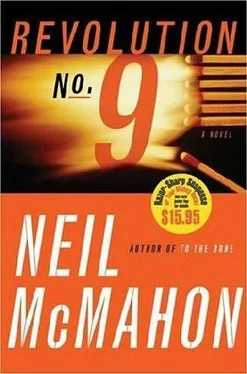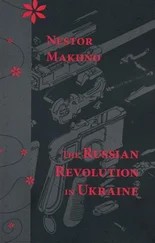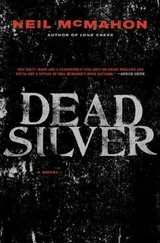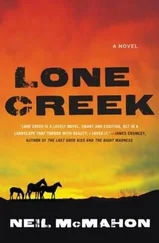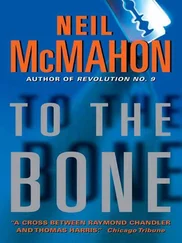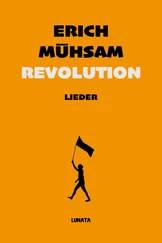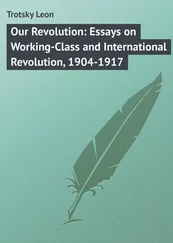Out of habit he pinched up a bit of Mandrake’s flesh, in a different place this time. Insulin shots dissolved fatty tissue; if repeated, they could leave dimples. The absurdity of worrying about things cosmetic in this situation flashed across his mind.
“I’m sorry I have to sting you, Mandrake,” he said. “But it’s going to make you feel better, I promise.” Mandrake squirmed a little in protest this time. The show of resistance pleased Monks perversely. Mandrake still hadn’t cried at all for his mother. Monks had assumed at first that his lethargy was too deep, but maybe Marguerite had been filling that role. Or maybe Mandrake had already figured out, with the prescience that some children seemed to have, that he shouldn’t expect much in the way of nurturing from Motherlode.
“Okay,” Monks said, withdrawing the needle and swabbing the puncture with vodka. “Let’s see about that soup.”
He walked to the bedroom door, dragging the cable from his hobbled ankles, and looked into the main room. Someone was sitting in a chair beside the door. Monks recognized the bulky shape of Hammerhead. He had traded his shotgun for an assault rifle like Captain America ’s.
“Mandrake needs to eat,” Monks said.
“I’ll tell Marguerite.” Then Hammerhead added stiffly, “My orders are to get you anything you want, as long as it’s cool.”
Monks decided not to get into what “cool” constituted just now.
“I’d like to see my son,” he said.
“I’ll pass that on.”
“I could use some strong coffee. And I need to clean up. Soap, towel, toothbrush, all that.”
Hammerhead took his radio from his belt and punched a series of beeps. He spoke into it with the clipped, quasi-military style that Monks had heard Hammerhead use last night.
“Brother, this is Hammerhead calling Marguerite, requesting immediate assistance at the lodge. Repeat, Marguerite to the lodge. Over.”
A moment later, a woman’s voice answered: “Marguerite copies. Over.”
“The kid needs soup. And bring a toothbrush and that kind of shit. Over.” He hooked the radio back on his belt, then walked to Monks.
“Lay down on your belly with your hands spread out,” he said. Monks did. He felt a tugging at his ankles, then heard a click. “Okay, get up.” Monks stood and realized that he was free of the cable. But the shackles around his ankles stayed on.
“I’ll take you to the washhouse,” Hammerhead said, gesturing with the rifle toward the lodge’s door.
“Wait a minute. Can’t I put my boots on?”
Hammerhead shook his head decisively. “Nobody gave me orders for that.”
Monks hobbled outside in his socks like a convict on an old-time chain gang, Hammerhead and his rifle trailing just behind. It was the first time that he had been out of the lodge since arriving late last night-the first time he’d seen the camp in daylight. His impression of being in an earlier century was strengthened. The place consisted of a several-acre clearing with a dozen or so old log buildings and sheds, situated in a small canyon ringed with rocky crags. The vehicle that had brought him here was gone, and there were no others, nor any sign of electrical power. Steep slopes covered with fir and pine rose in all directions as far as he could see. The only man-made things in the entire vista besides the buildings were a few distant switchback logging roads that looked long disused. The single exit was a rutted dirt trail barely wide enough to drive on.
The afternoon was dark, a premature twilight, the sky heavy with blanketing clouds rolling in off the Pacific. The wind had risen and the air had a brisk, even wild, feel. Without doubt, a winter rain was going to roll in soon. Those tended to last for days, and in the mountains, they could readily turn to snow. The sun was invisible, but he guessed which way west lay from the wind, and his sense that the terrain in that direction was opening down toward the sea.
“Wait here,” Hammerhead said.
Monks watched him walk to meet Marguerite, who was coming toward them with a folded towel in her hands. In the lonely dusk, with her long hair blowing in the wind, she looked like a tragic figure from an early romantic novel, a fallen woman moving toward some doomed assignation.
When Hammerhead got to her, she handed him the towel. They spoke briefly. The import was unclear, but she turned her head aside and hurried on to the lodge.
Hammerhead came back and, in grim silence, marched Monks onward.
The washhouse looked like something at a national park campground, with separate men’s and women’s entrances marked by crudely carved wooden signs. Hammerhead gave Monks the towel and, to Monks’s relief, let him go in alone.
The floor was concrete, with a drain in its center. There was a big porcelain laundry basin and a showerhead, both cold water only, and Monks was surprised to see a flush toilet. Presumably, the plumbing was fed by gravity flow from a spring or stream. An old Stihl calendar featuring two bare-breasted women holding chainsaws was tacked to a wall. That was the only decorative touch. The basin and toilet were gummy with stains and scum, the floor caked with the mud of tromping boots.
The towel had a toothbrush, a tube of toothpaste, and a bar of Ivory soap wrapped up inside. Monks felt like a prisoner of war who had just gotten a care package from the Red Cross. The sleep had done him a world of good. There was even a certain pleasure in simply being alone for the first time since he had gotten here.
He stripped, turned on the shower, and stepped in, baring his teeth in fierce elation at its chilling spray.
When they got back to the lodge, Monks paused outside the door and stepped close to Hammerhead, peering into his square face.
“What are you looking at?” Hammerhead demanded.
“Your left eye. That tic.”
“I got a tick on my eye?” he said in alarm. One hand rose quickly to touch it, fingers searching.
“No. Tic. T-I-C. Like a twitch.” Monks fluttered his own left eyelid in demonstration.
“That’s bullshit. I don’t have any tic.”
“You probably don’t even notice it. Ever get headaches?”
“No.”
“Really? I don’t mean killers. Just sort of low-level tension.”
A pause. Then, suspiciously, “Maybe. Like, if I got a hangover.”
“It might feel like a hangover,” Monks agreed. “How about voices? You know, buzzing around in your brain, trying to get you to do things?”
“What the fuck you talking about, man?” Hammerhead stepped back, the rifle shifting nervously in his grip.
“Never mind,” Monks said. “It’s probably nothing.”
Hammerhead swallowed hard. Then he swung the gun’s barrel viciously toward the lodge’s door.
“Get on inside.”
Smiling very faintly, Monks got on inside.
A few minutes later, Monks walked again across the dusky, windy camp to talk with his son for the first time in almost five years. Hammerhead had come into the lodge to inform him dourly that Freeboot had given his okay. Monks’s status seemed to be rising. He had not been cabled up again, and he was being granted visiting privileges.
The cabin that Hammerhead took him to was one of half a dozen that were scattered among the other buildings. Its small windows were caked with grime, and it shared the sense of neglect, almost squalor, that Monks had noticed around the camp in general. Most military operations were sticklers for neatness. But, it was undoubtedly a lot more fun to hustle around with radios and guns than to do anything as mundane as cleaning.
As they walked, Hammerhead glanced at him several times nervously, almost furtively, as if he wanted to ask a question, but couldn’t bring it to his lips. Monks offered no encouragement.
Читать дальше
